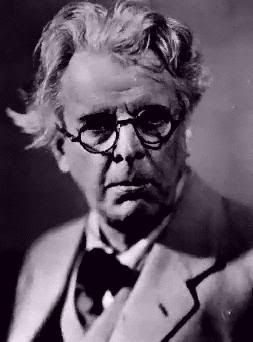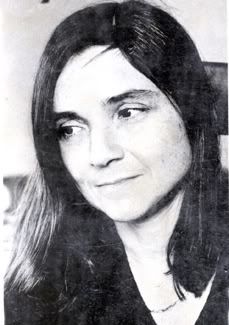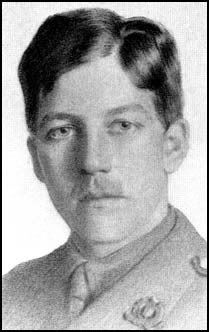I’d like to start another weekly column,
Poem of the Week. I write so much myself it was really a shame that I haven't read a lot of poetry, but lately I’ve started to discover quite a bit (taking a modern poetry class doesn’t hurt). So every week I’ll put up a new poem and say a few words about. Hope you enjoy!

"Sailing to Byzantium” by W.B. Yeats
That is no country for old men. The young
In one another's arms, birds in the trees
- Those dying generations - at their song,
The salmon-falls, the mackerel-crowded seas,
Fish, flesh, or fowl, commend all summer long
Whatever is begotten, born, and dies.
Caught in that sensual music all neglect
Monuments of unageing intellect.
An aged man is but a paltry thing,
A tattered coat upon a stick, unless
Soul clap its hands and sing, and louder sing
For every tatter in its mortal dress,
Nor is there singing school but studying
Monuments of its own magnificence;
And therefore I have sailed the seas and come
To the holy city of Byzantium.
O sages standing in God's holy fire
As in the gold mosaic of a wall,
Come from the holy fire, perne in a gyre,
And be the singing-masters of my soul.
Consume my heart away; sick with desire
And fastened to a dying animal
It knows not what it is; and gather me
Into the artifice of eternity.
Once out of nature I shall never take
My bodily form from any natural thing,
But such a form as Grecian goldsmiths make
Of hammered gold and gold enamelling
To keep a drowsy Emperor awake;
Or set upon a golden bough to sing
To lords and ladies of Byzantium
Of what is past, or passing, or to come.I’m guessing you noticed the glaring reference that Cormac McCarthy took for his novel that became this year’s Oscar winner via the Coen Brothers.
This poem was published later in his life (Published in
The Tower in 1928) and shows Yeats expressing the desire to transcend humanity and become his art, ever eternal. Well, I’m studying him at school, so he got his wish?
I think most artists in general have this desire, I know I do.
Link:
W.B. Yeats on wikipedia


